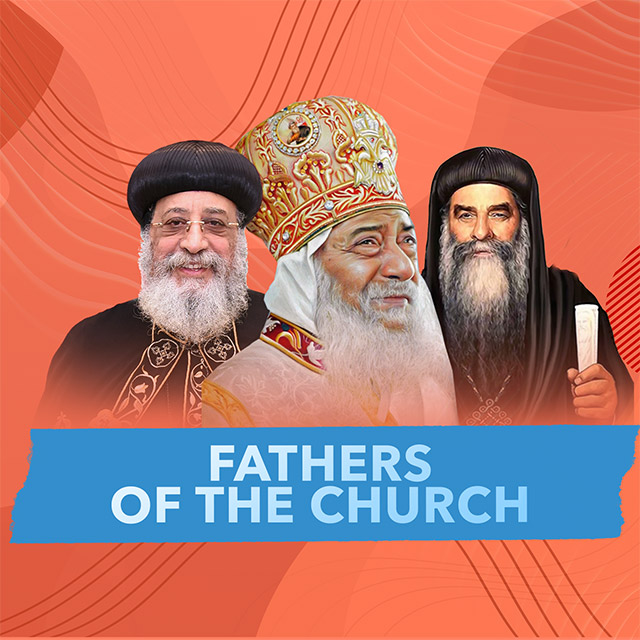(1) The Incarnation
(John 1:14; Philippians 2:7–8; Colossians 1:21–22; 2 John 7)
In order for redemption to be fulfilled, the second Person of the Trinity—the Word—had to become incarnate. In the fullness of time, the Word dwelt in the womb of the Virgin Mary. This was by the Holy Spirit, who overshadowed her and formed within her the body of the Savior. It was pure and sinless, as it was without human seed. The Divinity united with humanity—body and soul—in the Person of Christ who was born of the Virgin. He is thus God manifested in the flesh. The union of Divinity and humanity occurred in one nature, bearing the attributes of both the divine and human natures without confusion, mixing, or change to either nature. We also believe that His Divinity never separated from His humanity (His soul and body) not for a moment nor the blink of an eye.
⸻
(2) Redemption and Inherited Sin
(Romans 3:25; 5:12; 1 Corinthians 1:30; Ephesians 1:7; 5:2; Colossians 1:14, 20; 2:14; 1 John 1:7)
The death that was decreed upon us was borne by Christ on the cross. He offered His body in place of all humanity to annul the judgment of death, restore mankind to incorruption, and give them life. All were born of Adam, who was under the sentence of death, and therefore all were born under that same sentence, for “the wages of sin is death” (Romans 6:23). Adam’s sin brought death upon him and his descendants who were still in his loins when he sinned. Hence, death passed to all. Due to Adam’s sin, we inherited a corrupted nature. But through Christ’s redemptive work, the sentence of death was lifted, and we gained the right to eternal life.
⸻
(3) The Divinity of Christ
(John 1:1; Philippians 2:6; Colossians 1:15, 19; 1 Timothy 3:16; Revelation 1:17–18)
In addition to His many miracles, which proved His authority over death, sickness, evil spirits, and nature, our faith holds that Christ is “God manifested in the flesh” (1 Timothy 3:16). He exists in His divinity before the ages, even though He was incarnate in time. In His divine nature, He exists with the Father and the Holy Spirit in the one divine essence, eternally and forever. He is one with the Father in essence—God from God, Light from Light, begotten (with respect to His divinity) of the Father before all ages.
⸻
(4) The Holy Trinity
(Matthew 28:19; 1 John 5:7)
Christians around the world believe in One God in Trinity—Father, Son, and Holy Spirit—one essence, one Being, three Persons. The divine Being has three essential (not relative) attributes: existence, expression, and life. God exists by Himself, expresses Himself through His Word (the Son), and is alive by His Spirit—the Father, the Son, and the Holy Spirit.
⸻
(5) Eternity
(John 5:28–29; Jude 21; Revelation 3:5)
Christians believe that human beings are immortal and that there is life after death. After the Day of Judgment, the Lord will reward everyone according to their deeds: the righteous will inherit eternal life in the everlasting kingdom in communion with God, while the wicked will suffer eternal torment in hell, eternally separated from God.
⸻
(6) The Millennial Reign
(Revelation 20:2, 4, 6–7)
Our Church believes that the “thousand years” mentioned in the Book of Revelation is symbolic, not literal: “With the Lord one day is as a thousand years, and a thousand years as one day” (2 Peter 3:8). This reign began with Christ’s death on the cross, His binding of Satan, and His spiritual reign over His children, and it will end at the close of the age (John 12:31; Revelation 20:2).
⸻
(7) The Second Coming and the Rapture
(Matthew 25:31–33; 1 Thessalonians 4:15–17; 2 Peter 2:12)
Our Church teaches that Christ will come twice to this world:
• The First Coming: already fulfilled, in which He came to accomplish salvation.
• The Second Coming: expected at the end of this age when He will judge the living and the dead according to their deeds.
The Rapture will occur at His Second Coming: the trumpet will sound, the dead in Christ will rise, and the living will be changed. The Lord will descend from heaven with the saints, and the living believers—whose bodies will be transformed—will be caught up to meet the Lord in the air. Then all shall stand before the Just Judge to receive reward or punishment according to divine justice.
⸻
(8) The Holy Spirit
(John 15:26)
God exists by Himself, speaks by His Word, and lives by His Spirit. The Holy Spirit possesses the attributes and works of God:
• He is omnipresent (John 14:16)
• All-knowing (1 Corinthians 2:10–11)
• Holy (Ephesians 1:13)
• Creator (Job 33:4)
• Spirit of truth (John 16:13)
• Almighty (Romans 15:17)
• Searches hearts (1 Corinthians 2:10)
• Giver of life (Romans 8:11)
• Eternal (Hebrews 9:14)
• Judge (John 16:8)
• Forgives sins (1 Corinthians 6:11)
• Bestower of gifts (1 Corinthians 12:5–12)
He is the third Person of the Holy Trinity—one in essence with the Father and the Son.
⸻
(9) Intercession
Intercession means mediation and seeking aid. There are three types:
1. Atoning Intercession – Unique to Christ, whose blood is the means of our salvation (1 John 2:1–2).
2. Supplicatory Intercession – Requesting help from the saints before God due to their great favor with Him (Mark 2:3–5; Luke 7:3–6; John 2:1–5; Acts 12:5).
3. Intercession of the Holy Spirit – The Holy Spirit comforts us and completes and corrects our prayers (Romans 8:26–27).
⸻
(10) Honoring the Virgin Mary
(Luke 1:28, 43, 45, 48)
Since the early Church, the Virgin Mary has been honored as declared in Scripture. She is glorified with hymns, icons, and churches named after her. She is foremost among the saints and intercessors. Because she is the Mother of Christ, she is called the Mother of the Savior, the Mother of Light, and her role in the Church continues powerfully through the ages.
⸻
(11) Perpetual Virginity of Mary
Mary remained a virgin before, during, and after the birth of Christ. Calling her “woman” and Joseph her “husband” reflects Jewish betrothal customs (Matthew 1:18). The reference to her “firstborn” (Matthew 1:25) does not imply subsequent children; “firstborn” refers to the first child regardless of others. Likewise, “Joseph did not know her until she gave birth” does not imply he knew her afterward—similar to Psalm 123:2: “Our eyes look to the Lord our God, until He has mercy upon us.”
⸻
(12) Gifts and Speaking in Tongues
(Romans 12:5–7; 1 Corinthians 12:8–10)
The Holy Spirit grants gifts to believers to fulfill service needs. To glorify God, He gave the gift of miracles; to heal the sick, He gave the gift of healing; and at the start of the Church, for preaching to nations, He gave the gift of tongues. The Holy Spirit urges us to “earnestly desire the best gifts” (1 Corinthians 12:31) through humility and love. These gifts began at Pentecost and continue to this day—not for show, but for ministry. A gift is for service and does not save the one who has it unless it is used fruitfully and bears the fruits of the Spirit, that is, Christian virtues.
⸻
(13) Holy Tradition
(1 Corinthians 11:1, 34; Titus 1:5; 2 John 12; 3 John 12–13)
Tradition, or Apostolic Tradition, refers to oral teachings, religious regulations, and Church order passed from generation to generation—from Christ to the apostles, and from the apostles to their successors (bishops and priests). It preserves the integrity of the Christian faith and guards it from deviation. It is one of the foundational sources of the faith.
⸻
(14) Angels
(Matthew 26:53; 28:2; Luke 1:11, 19, 26–27; 2:10–11; Acts 10:3–4, 22, 27; 1 Thessalonians 4:16; Hebrews 1:7; Jude 9)
Angels are ministering spirits who surround the throne of God, worshiping day and night. They rejoice in our joy and sorrow in our suffering. They serve those who are to inherit salvation. Angels are ordered in ranks: Angels, Archangels, Principalities, Authorities, Thrones, Dominions, Powers, Cherubim, and Seraphim. Each rank has a specific role appointed by God. Over them are seven Archangels, led by Michael, the chief of the seven.
⸻
(15) Free Will and Election
(Matthew 19:16; 23:37; John 5:40)
Our biblical doctrine emphasizes human responsibility in salvation. God desires that all be saved but respects our free will. We can choose Him or reject Him. In His foreknowledge, He knows the elect, but we do not know who they are until the kingdom is revealed. Thus, we do not refer to anyone on earth as “elect,” because believers can fall away if they do not persevere in faith and struggle until life’s end.
God shows no favoritism and is never unjust. Though He once chose Israel, He opened salvation to all nations. Even within Israel, only the righteous were saved. When Scripture appears to show God predetermining someone’s fate, it is based on His foreknowledge of their future choices and will. God may choose, but He never chooses those who persist in evil. In Romans 9, St. Paul responds to the Jewish limitation of God’s freedom to choose others beyond Israel.
⸻
(16) The Antichrist
(2 Thessalonians 2:2–4; 1 John 2:22; Revelation 3:3, 5; 13:7)
Before Christ’s final coming, there will appear a man of sin—the son of perdition—empowered by Satan to perform signs to deceive the world. His reign will last three and a half years, during which the world will endure great tribulation. This deceiver will blaspheme God and His saints, claim divinity, and set himself up as an object of worship to replace the true God. He is described in Revelation as the first beast from the sea. He will war against God’s people, especially Elijah and Enoch. Though they defeat him, God will allow him to kill them. After three and a half years, Christ will destroy him and cast him into hell.
⸻
(17) Icons
(John 12:26)
We do not worship icons but honor those depicted in them. As the Lord said, “If anyone serves Me, him My Father will honor” (John 12:26), if the Father honors His saints, should we not also?
Icons date back to apostolic times. St. Luke painted an image of the Virgin Mary. St. Paul mentioned the use of imagery in churches (Galatians 3:1). Tradition recounts the imprint of Christ’s image on a cloth. Icons evoke spiritual feelings in the faithful. The strongest eras of faith were full of icons that strengthened believers. In Church, icons are anointed with holy oil, offered incense, and miracles occur before them.
⸻
(18) Honoring and Signing the Cross
(1 Corinthians 1:23; Galatians 6:14)
The cross is tied to Christ the Redeemer. It is the sign of our salvation—like a national flag to which people bow in respect, so we honor the cross as a sign of Christ’s love and His power over Satan, whom He bound by the cross.












